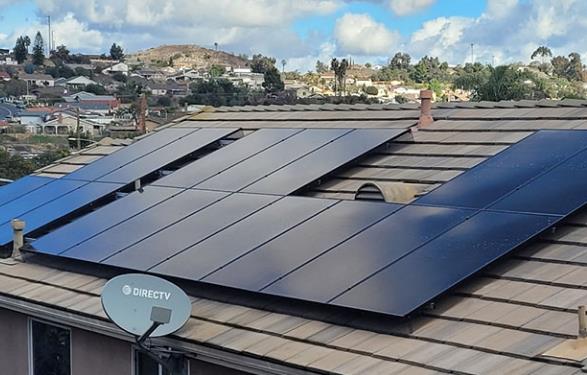Do Solar Panels Generate More Power in Summer Than Winter?
The efficiency of solar panels fluctuates with the seasons, leading many to question whether these renewable energy sources are more productive in the summer than in the winter. The short answer is yes, but the reasons behind this phenomenon are multifaceted, involving factors such as sunlight exposure, temperature, and the angle of solar panels. Let's delve into the specifics of why solar panels typically generate more power during the summer months.

Increased Daylight Hours
One of the primary reasons solar panels produce more energy in the summer is the extended daylight hours. During summer, the Earth's tilt ensures that the Northern Hemisphere receives sunlight for a longer duration each day compared to winter months. More daylight means more time for solar panels to absorb sunlight and convert it into electricity.
- Data Point: In regions with significant seasonal changes, daylight hours can nearly double from winter to summer, significantly impacting solar power generation.
Sun's Elevation and Panel Angle
The sun's elevation in the sky changes with the seasons, affecting how directly sunlight hits the solar panels. In summer, the sun is higher, and sunlight strikes the panels more directly compared to the lower winter sun. Solar panels are usually installed at an angle optimized for the sun's average position, making them more efficient during summer months when the sun's path is closer to this optimal angle.
Temperature Effects
Contrary to popular belief, solar panels operate more efficiently at cooler temperatures. High temperatures can actually reduce the efficiency of photovoltaic cells, a phenomenon known as the temperature coefficient. However, the significantly longer daylight hours and more direct sunlight in summer usually outweigh the negative impact of higher temperatures, leading to greater overall energy production.
- Data Point: Solar panels can experience efficiency losses of about 0.5% for every degree Celsius above 25°C (77°F), but the effect on overall summer production is generally minimal compared to the gains from longer daylight hours and direct sunlight.
Weather Patterns
Weather patterns also play a role in seasonal energy production. Summer tends to have more clear days in many regions, while winter can bring cloud cover, snow, and shorter days, all of which reduce solar panel efficiency. However, geographic location significantly influences this factor, with some areas experiencing sunny winters and cloudy summers.
Do Solar Panels Produce More in Summer Than Winter: Conclusion
Solar panels indeed generate more power in summer than in winter, primarily due to longer daylight hours, the sun's higher elevation, and more direct sunlight. While higher summer temperatures can slightly reduce panel efficiency, the benefits of increased sunlight exposure far outweigh the drawbacks. However, solar panel owners should not discount their winter production; with proper installation and maintenance, solar panels can provide a significant energy output year-round, contributing to a household's energy independence and reducing reliance on non-renewable energy sources.